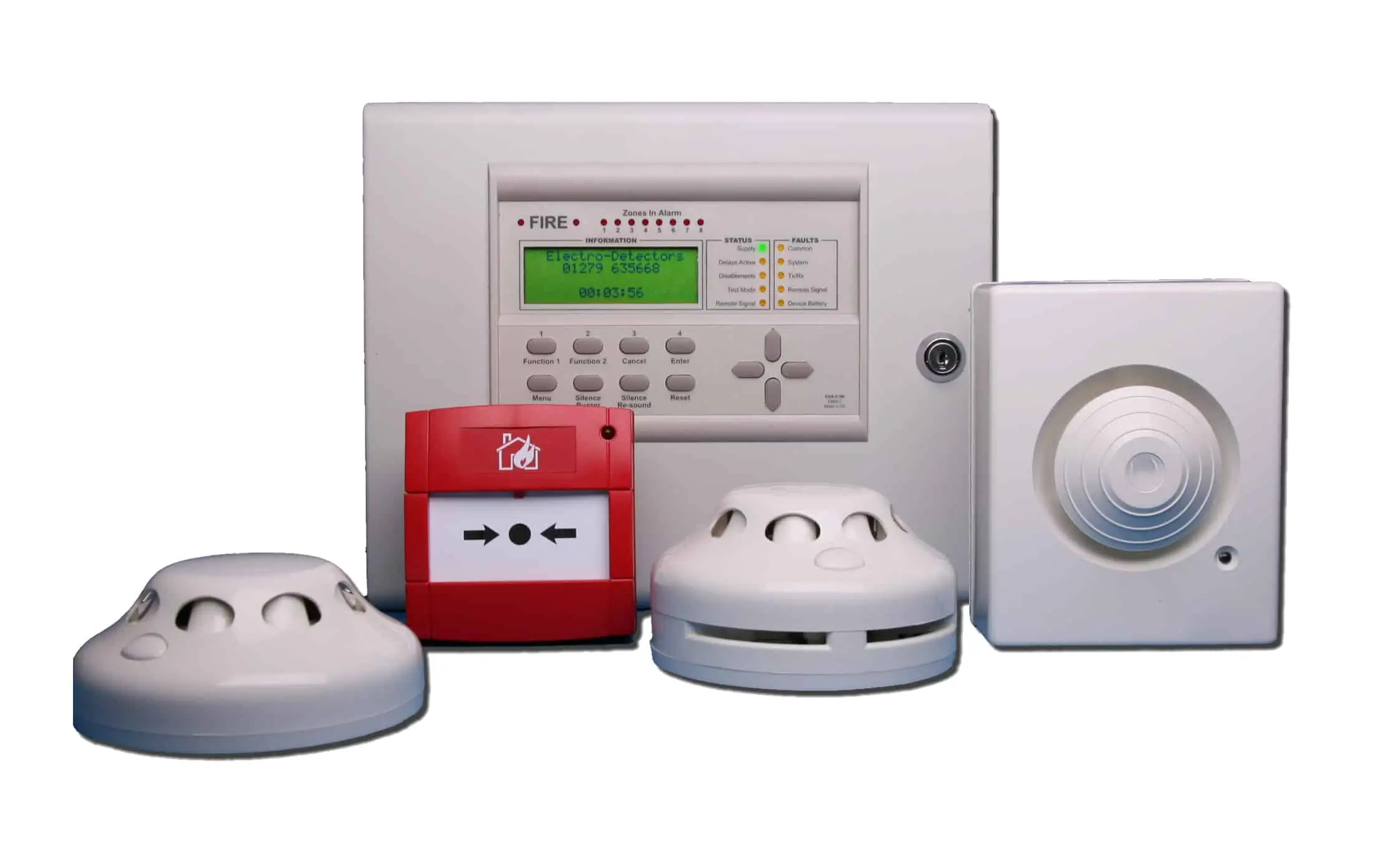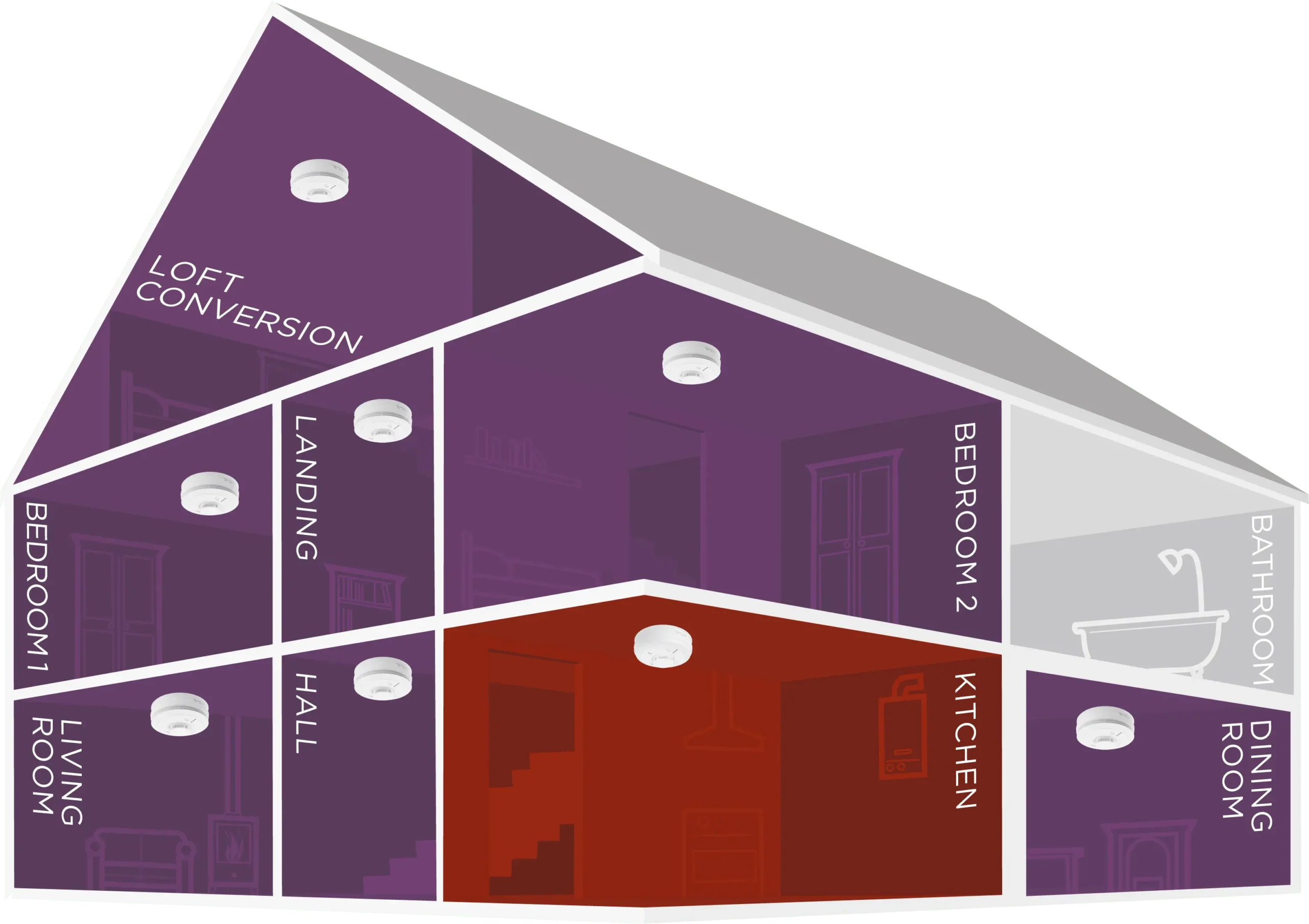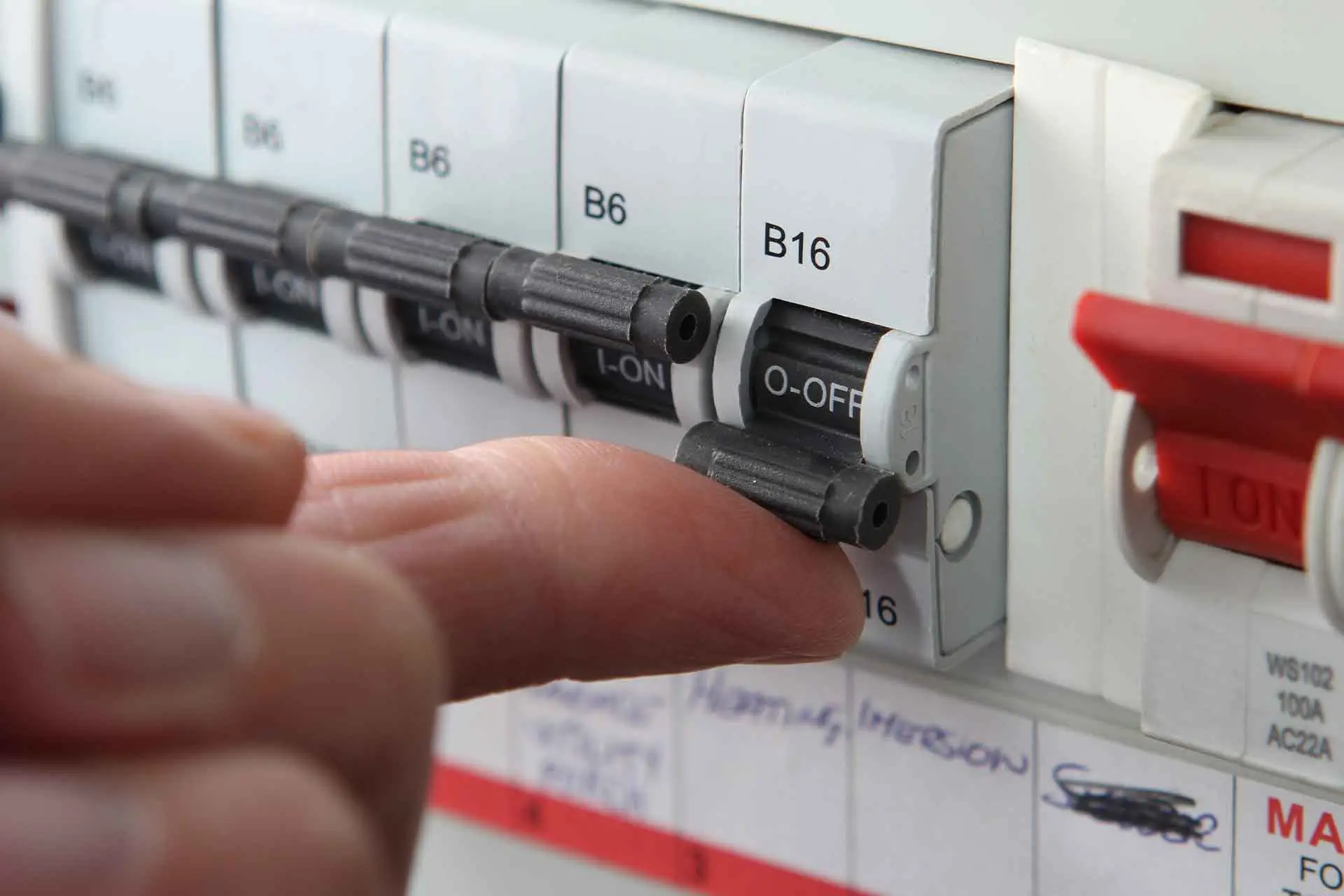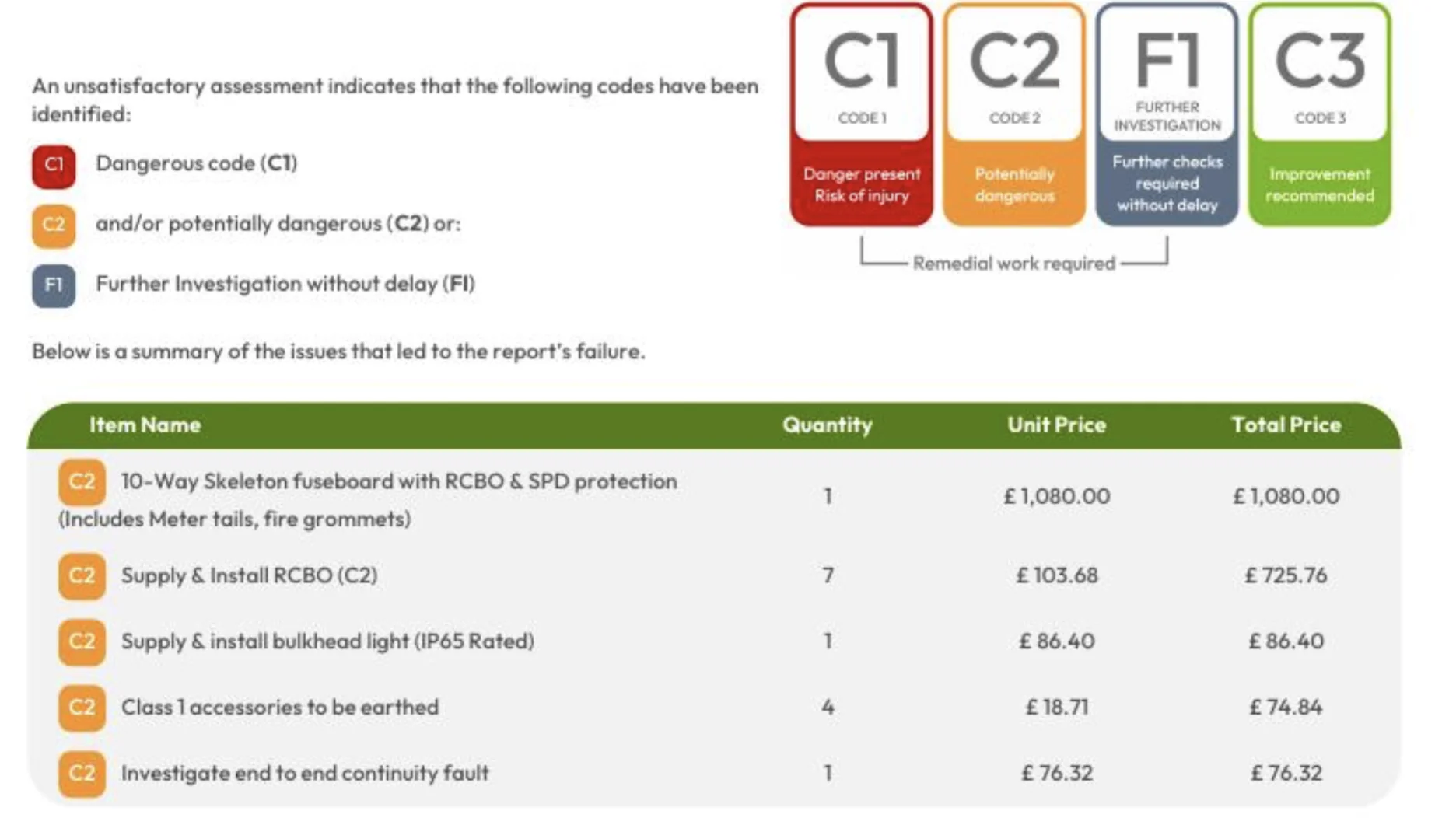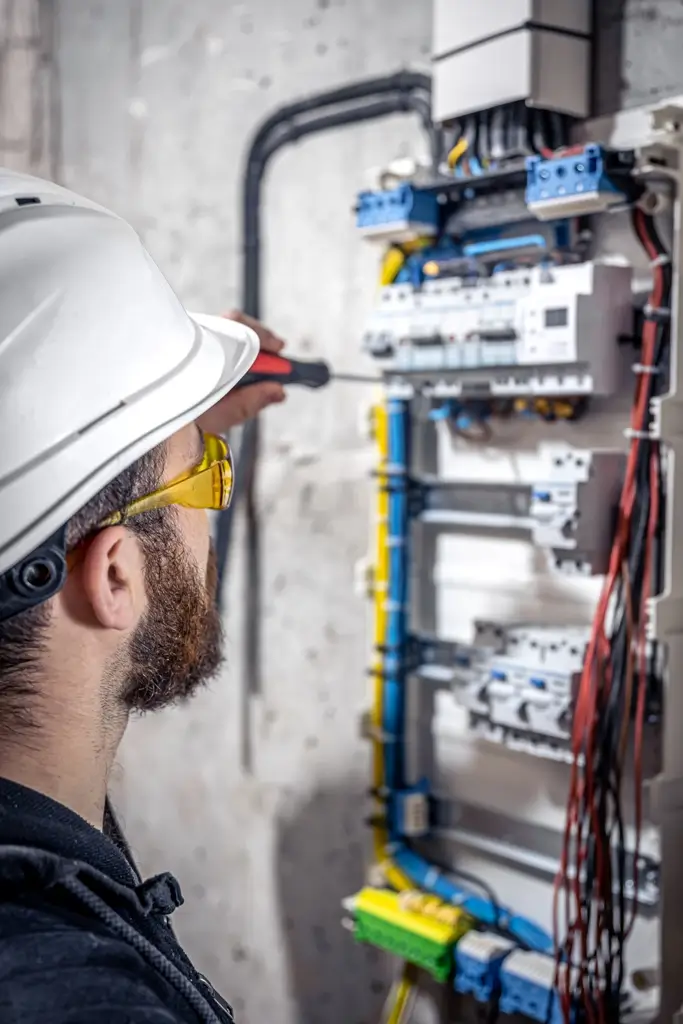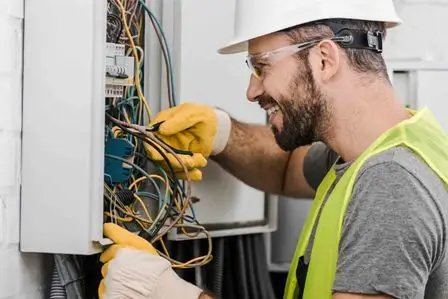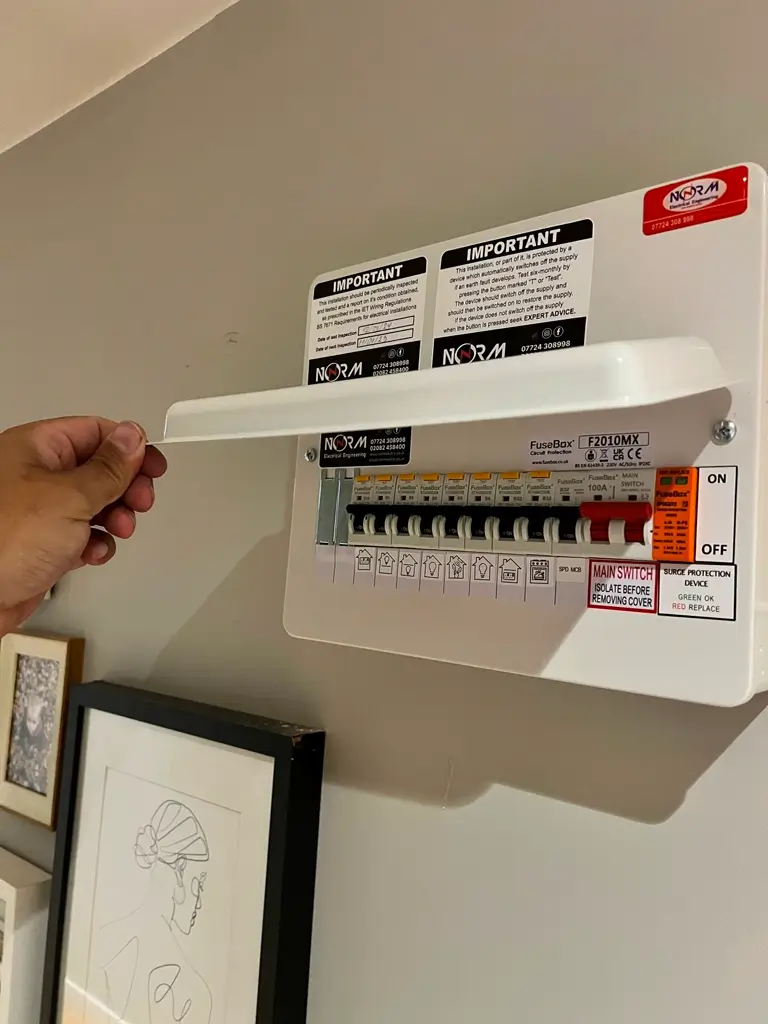Top Fire Alarm Systems for London Homes: A Buyer’s Guide
When it comes to safeguarding your home, one of the most important systems you can invest in is a reliable fire alarm system. London homes, whether they are modern apartments or Victorian houses, need comprehensive fire safety solutions. A high-quality fire alarm system will alert you early in the event of a fire, allowing you to evacuate safely and contact emergency services without delay. However, choosing the right fire alarm system for your home can be a daunting task, with so many options on the market.
This comprehensive guide will walk you through everything you need to know about fire alarm systems, from the types available, how they work, to how to choose the best one for your home in London. We’ll also cover legal requirements, installation tips, and maintenance advice. Plus, we’ll highlight Norm Electrical Engineering as your trusted provider for expert installation and service of fire alarm systems in London.
Table of Contents
Introduction: Why Fire Alarm Systems Are Essential in London Homes
Understanding the Different Types of Fire Alarm Systems
2.1 Smoke Detectors
2.2 Heat Detectors
2.3 Carbon Monoxide Detectors
2.4 Smart Fire Alarm Systems
How Fire Alarm Systems Work
Legal Requirements for Fire Alarm Systems in London
Choosing the Right Fire Alarm System for Your London Home
Best Fire Alarm Systems for London Homes
6.1 Standalone Smoke Detectors
6.2 Interconnected Fire Alarm Systems
6.3 Smart Fire Alarm Systems
How to Install a Fire Alarm System in Your Home
7.1 Placement Considerations
7.2 Professional Installation vs. DIY
Maintenance of Fire Alarm Systems
8.1 Testing Your Fire Alarm
8.2 Changing Batteries
8.3 Cleaning and Inspecting
Fire Alarm System Costs and Budgeting
Why Choose Norm Electrical Engineering for Your Fire Alarm Installation
Common Myths About Fire Alarm Systems
Conclusion: Ensure Your Home’s Safety Today
1. Introduction: Why Fire Alarm Systems Are Essential in London Homes
London, one of the busiest and most diverse cities in the world, has a wide range of properties, each with unique fire safety requirements. Whether you live in a flat, townhouse, or a detached home, a fire alarm system is one of the most effective ways to ensure your family’s safety. Fires can spread rapidly, and every second counts when it comes to escaping or preventing damage. A fire alarm system helps you detect fires early, giving you the time you need to react.
According to the London Fire Brigade, fire safety in the home is critical, as thousands of fires occur annually, many of which could have been prevented with proper detection and warning systems. A well-installed fire alarm system can save lives, reduce property damage, and provide peace of mind.
2. Understanding the Different Types of Fire Alarm Systems
When considering a fire alarm system for your London home, it’s important to understand the different types of detectors and alarms available. These systems work in different ways and are designed for various environments and needs. Below is a breakdown of the most common types.
2.1 Smoke Detectors
Smoke detectors are one of the most common types of fire alarms. They are designed to detect the presence of smoke, which is often the first sign of a fire. When smoke is detected, the alarm triggers a loud sound to alert residents. There are two main types of smoke detectors:
Ionization Smoke Detectors: These are highly sensitive to fast, flaming fires and work by detecting the ionization of air caused by smoke particles.
Photoelectric Smoke Detectors: These detectors are more sensitive to smoldering fires and use a light beam that is scattered when smoke is present.
2.2 Heat Detectors
Heat detectors are another type of alarm system that works by sensing a rapid increase in temperature. These are ideal for areas where smoke detectors might trigger false alarms, such as kitchens or garages. Heat detectors do not respond to smoke but instead to a change in temperature, making them less prone to nuisance alarms.
2.3 Carbon Monoxide Detectors
Carbon monoxide (CO) detectors are increasingly being integrated into fire alarm systems, especially in homes with gas appliances, fireplaces, or carports. CO is a colorless, odorless gas that can be lethal in high concentrations. A CO detector will alert you to elevated levels of carbon monoxide in your home, potentially saving lives from this invisible threat.
2.4 Smart Fire Alarm Systems
Smart fire alarm systems are the latest advancement in home fire safety. These systems connect to your smartphone, allowing you to receive alerts even when you’re away from home. Smart systems often integrate with other home automation devices, providing features like remote monitoring, voice alerts, and integration with smart home security systems.
3. How Fire Alarm Systems Work
Fire alarm systems generally consist of three main components:
The Sensor: This is the part of the system that detects smoke, heat, or carbon monoxide. Smoke detectors use ionization or photoelectric technology to sense smoke particles, while heat detectors sense temperature changes.
The Alarm: Once a sensor detects smoke, heat, or CO, it triggers the alarm, which emits a loud sound to alert residents of the danger.
The Control Panel: In more complex systems, especially in larger homes or commercial buildings, a control panel may be used to manage multiple sensors and alarms. This panel can also be connected to emergency services or local fire stations for immediate response.
4. Legal Requirements for Fire Alarm Systems in London
In the UK, fire safety is governed by strict laws and regulations. According to the Fire Safety Order 2005, all non-domestic properties must have a fire alarm system that complies with regulations. In domestic properties, although fire alarm installation is not mandatory, it is strongly recommended for safety.
For rental properties in London, the Smoke and Carbon Monoxide Alarm (England) Regulations 2015 require landlords to install smoke alarms on every floor and carbon monoxide alarms in rooms with solid fuel-burning appliances. Homeowners are not legally required to install fire alarms but are encouraged to do so for their safety.
For detailed regulations, visit Gov.uk Fire Safety Page.
5. Choosing the Right Fire Alarm System for Your London Home
Choosing the right fire alarm system for your home depends on several factors, including the size of your property, your specific needs, and your budget. Consider the following:
Size of Your Property: Larger homes may require interconnected or multi-zone systems, while smaller flats can often make do with standalone smoke detectors.
Type of Alarm: If you live in an area prone to false alarms (like a kitchen), you might prefer a heat detector over a smoke detector.
Budget: Prices vary widely based on the complexity of the system. Smart systems tend to be more expensive but offer additional features, such as remote monitoring.
For expert advice on selecting the right system, Norm Electrical Engineering offers consultations tailored to your property and needs. Visit Norm Electric or call 020 8245 8400 for more details.
6. Best Fire Alarm Systems for London Homes
Below are some of the best fire alarm systems for residential properties in London, ranging from basic smoke detectors to advanced smart systems.
6.1 Standalone Smoke Detectors
Ideal for small homes or flats, standalone smoke detectors are easy to install and budget-friendly. These alarms are battery-operated and can be placed in bedrooms, hallways, or other key areas of the home.
6.2 Interconnected Fire Alarm Systems
For larger homes, interconnected fire alarm systems are ideal. When one alarm detects smoke, the others in the system will sound as well. This ensures that everyone in the house hears the alarm, no matter where they are.
6.3 Smart Fire Alarm Systems
Smart fire alarms are the most advanced choice for tech-savvy homeowners. These systems can connect to your smartphone and send alerts if smoke, heat, or carbon monoxide is detected. Some systems integrate with other smart devices, such as security cameras or lighting systems, offering enhanced control and monitoring.
7. How to Install a Fire Alarm System in Your Home
7.1 Placement Considerations
Proper placement of your fire alarm system is crucial to its effectiveness. Smoke alarms should be placed on the ceiling or high on walls, as smoke rises. Avoid placing detectors near windows, vents, or in kitchens, where false alarms may occur.
7.2 Professional Installation vs. DIY
While many smoke alarms can be installed by homeowners, larger or more complex systems should be installed by professionals. Norm Electrical Engineering provides expert installation services, ensuring that your fire alarm system is properly configured and installed according to the law and safety standards.
8. Maintenance of Fire Alarm Systems
To ensure your fire alarm system is always working correctly, regular maintenance is necessary.
8.1 Testing Your Fire Alarm
Test your fire alarm monthly to make sure it’s functioning properly. Press the test button to activate the alarm.
8.2 Changing Batteries
If your alarm runs on batteries, replace them annually. Many modern alarms have a low-battery warning, but it’s best to replace the batteries preemptively.
8.3 Cleaning and Inspecting
Dust and debris can accumulate in your smoke detector, affecting its performance. Clean it every six months by gently vacuuming or wiping it with a soft cloth.
9. Fire Alarm System Costs and Budgeting
The cost of a fire alarm system varies greatly depending on the type, size of the property, and complexity of the system. Basic smoke detectors may cost as little as £10-£30, while more sophisticated interconnected or smart systems can cost several hundred pounds. For larger homes or multi-zone systems, the cost may exceed £1,000.
To get an accurate quote for your property, contact Norm Electrical Engineering at 020 8245 8400 or 0772 430 8998.
10. Why Choose Norm Electrical Engineering for Your Fire Alarm Installation
At Norm Electrical Engineering, we specialize in fire alarm system installation and maintenance. We offer expert advice, top-quality products, and professional installation to ensure your home’s safety. Our team will work with you to select the right system, install it properly, and provide ongoing maintenance to keep your home protected.
Visit Norm Electric for more information or call 020 8245 8400.
11. Common Myths About Fire Alarm Systems
Myth 1: “Smoke alarms only need to be installed in the kitchen.”
Fact: Install smoke alarms in every bedroom and hallway, and on each floor of your home.
Myth 2: “Fire alarms are only for large homes.”
Fact: Even small homes need fire alarms, and they are available for every size of property.
12. Conclusion: Ensure Your Home’s Safety Today
A reliable fire alarm system is an essential part of any home safety plan. It’s not just about meeting legal requirements; it’s about protecting yourself and your loved ones from the dangers of fire. With the right fire alarm system, you can rest assured that you are taking the necessary steps to stay safe.
For expert installation, maintenance, and advice, contact Norm Electrical Engineering at 020 8245 8400 or 0772 430 8998, or visit www.normelectric.co.uk.
For more information on fire safety regulations and the latest guidance on fire alarms, visit Gov.uk Fire Safety.

